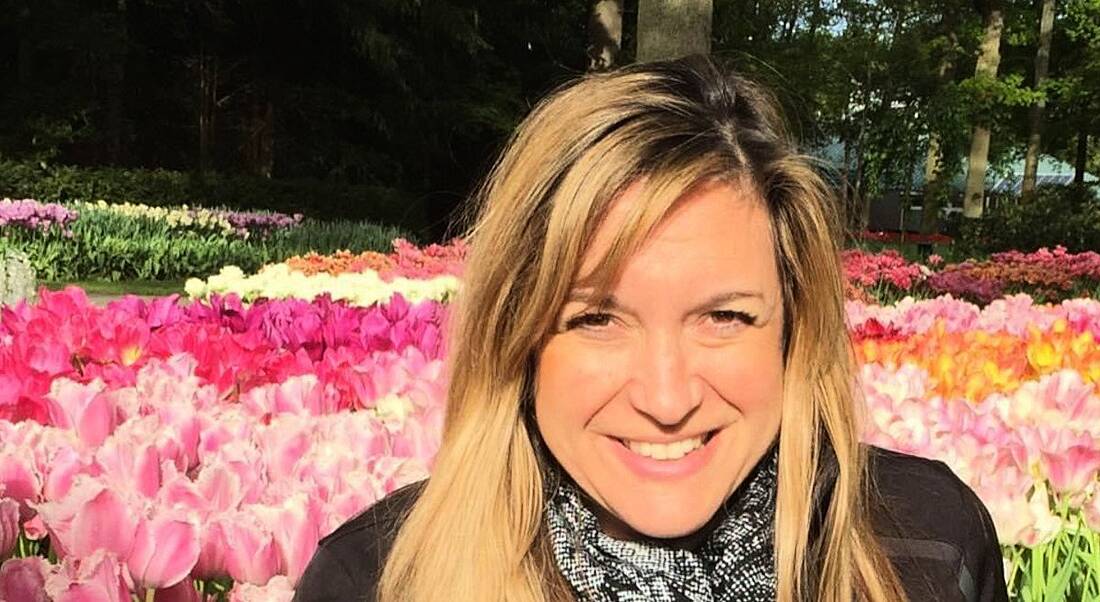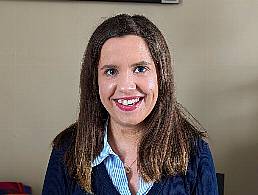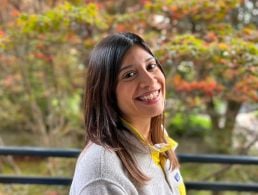Stacey Wasserman, Genuity Science’s chief commercial officer, talks about her passion for pushing the needle on genomics research after her own experience with cancer.
When Stacey Wasserman found out she had stage-three melanoma several years ago, it was a clinical trial for one of the early immuno-oncology drugs that helped her.
Wasserman, who has now been cancer free for many years, went on to become chief commercial officer at Genuity Science. Based in the US, she leads a team of business developers, marketers, strategists and more at the genomics data and insights company.
Here, she shares her experiences of working while living with cancer and explains how it helped shape her interest in genomics research.
Why did you want to work at a genomics company?
I am honoured to work for a company that has a mission of improving patients’ lives through the use of genomic data and insights. I am a strong believer in the goals of precision medicine; that we can determine the right treatment for the right patient at the right time.
I also believe that in the not-too-distant future, physicians will not want to treat a patient unless they understand the patient’s genetics, and that medicines and treatments will be targeted to individuals instead of populations.
The work we are doing at Genuity is helping the industry realise that goal for personalised medicine for more complex common diseases. We have seen this already in oncology and now we are beginning to move this idea into non-oncology diseases.
Would you mind talking about your experience of balancing your career with a cancer diagnosis?
As you can imagine, working while going through a cancer diagnosis and treatment can be a daunting task. I was very fortunate to be surrounded by a supportive team, both at work and at home.
There were days that I could not be at work because I was seeing a doctor or receiving a treatment. Luckily for me, we live in a mobile world and I was able to stay connected most of the time.
On the days I was not feeling well, I had a team to support me. I was also lucky that there we not many days that I was too ill to at least be at a computer, and for me it was helpful to maintain as much normalcy as possible.
The biggest challenge for me was trying to maintain a sense of normalcy for me and my family. I had small children and I wanted to shelter them from my diagnosis, treatments and any side effects I was experiencing. I worked hard to keep things as status quo as possible.
Were there any lessons you learned from your time with cancer that stand to you in your work now?
Having stage-three melanoma when I did was a scary experience, because some doctors told me there was not much they could offer me in terms of treatment. It’s a horrible thing to hear when you are a young working mother. This was before there were any immunotherapy drugs on the market to treat melanoma.
I ended up being part of a clinical trial for one of the early immuno-oncology drugs and it has been an amazing journey watching the complete transformation in the treatment of the disease.
At the time, I did not have any genetic testing because there were no drugs to treat patients with different variants. That is totally changed today. The drugs today are targeted based on genetic markers and have allowed doctors to treat patients based on genetics. The outcome has been a steep decline in patient mortality from melanoma. It’s almost remarkable!
It reminds me every day how important our work is as we search for ways to treat the unmet medical need in many complex diseases, both oncology and non-oncology. I know the answers are out there, we just have to find them.
What advice would you give to other people dealing with a cancer diagnosis?
It’s OK to ask for help. It’s OK to be scared. But also be your own advocate; do the research, read the papers.
When I was diagnosed, there were not clear answers on how to treat me and I got differing advice. Doctors told me that I needed to make decisions on treatments. So I went into research mode – calling doctors, getting multiple opinions. Use your network to connect you to people who can help you find the right answers and make good decisions for yourself.




